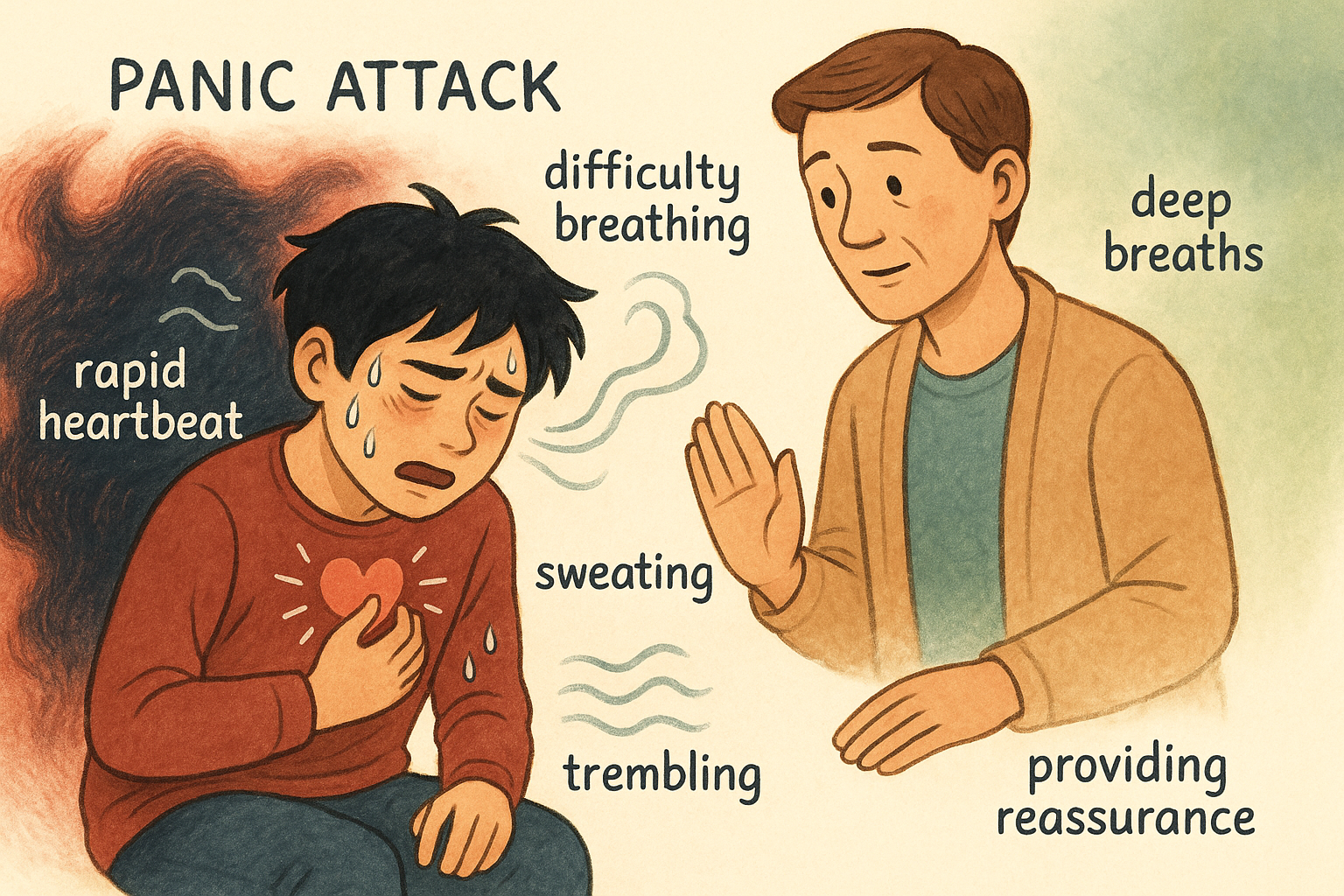Perfectionism and anxiety often go hand in hand for teenagers, creating a destructive cycle where the fear of making mistakes leads to increased anxiety, which in turn fuels even higher perfectionist standards. Understanding this relationship is crucial for helping teens develop healthier approaches to achievement and self-worth.
Understanding Teen Perfectionism
Perfectionism in teenagers goes far beyond simply wanting to do well. It involves setting unrealistically high standards, being overly critical of mistakes, and tying self-worth to flawless performance. While some level of striving for excellence can be motivating, perfectionism becomes problematic when it causes significant distress and impairs functioning.
Healthy Striving vs. Perfectionism:
- Healthy striving focuses on personal growth and learning from mistakes
- Perfectionism focuses on avoiding mistakes and maintaining a flawless image
- Healthy strivers are motivated by internal satisfaction
- Perfectionists are driven by fear of criticism and failure
How Perfectionism Fuels Teen Anxiety
Fear of Failure: Perfectionist teens live in constant fear of making mistakes or not meeting their impossibly high standards. This fear creates chronic anxiety and stress.
All-or-Nothing Thinking: Perfectionists often see situations in black and white terms – either perfect or completely failed. This cognitive pattern leaves no room for the normal learning process that includes mistakes.
Procrastination Paradox: Fear of imperfection can lead to procrastination, as teens delay starting tasks they fear they can’t complete perfectly. This procrastination then increases anxiety as deadlines approach.
Chronic Self-Criticism: Perfectionist teens engage in harsh self-talk and criticism, creating a constant state of internal stress and anxiety.
External Validation Dependence: When self-worth depends on perfect performance and external approval, teens become anxious about others’ judgments and reactions.
Signs of Perfectionist Anxiety in Teens
Academic Behaviors:
- Spending excessive time on assignments to make them “perfect”
- Avoiding challenges or new activities for fear of not excelling
- Extreme distress over grades that aren’t perfect
- Difficulty submitting work that feels “incomplete”
Social Behaviors:
- Avoiding social situations where they might make mistakes
- Excessive concern about others’ opinions
- Difficulty accepting compliments or praise
- Comparing themselves constantly to peers
Emotional Symptoms:
- Intense anxiety before tests, presentations, or evaluations
- Difficulty recovering from minor setbacks
- Chronic worry about future performance
- Low self-esteem despite achievements
The Roots of Teen Perfectionism
Family Expectations: High parental expectations, conditional love based on achievement, or family cultures that emphasize perfection can contribute to perfectionist tendencies.
Academic Pressure: Competitive school environments, college admission pressures, and emphasis on standardized testing can foster perfectionist attitudes.
Social Media Influence: Constant exposure to others’ “highlight reels” on social media can reinforce perfectionist beliefs about how life should look.
Personality Traits: Some teens may be naturally more sensitive to criticism or have temperaments that predispose them to perfectionist thinking.
Breaking the Perfectionism-Anxiety Cycle
Challenge All-or-Nothing Thinking:
- Help teens recognize that most situations exist on a spectrum, not as perfect or failure
- Encourage them to identify “good enough” standards for different situations
- Practice celebrating progress and effort, not just perfect outcomes
Reframe Mistakes as Learning Opportunities:
- Share stories of successful people who made mistakes and learned from them
- Help teens reflect on what they learned from their “failures”
- Model healthy responses to your own mistakes
Set Realistic Goals:
- Break large goals into smaller, achievable steps
- Focus on effort and improvement rather than perfect outcomes
- Celebrate small victories along the way
Practical Strategies for Perfectionist Teens
The “Good Enough” Practice: Deliberately do some tasks at a “good enough” level rather than perfectly. This helps teens realize that the world doesn’t end when things aren’t perfect.
Time Limits: Set specific time limits for assignments or projects to prevent endless perfecting and revision.
Mistake Journals: Keep track of mistakes and what was learned from them, helping to reframe errors as valuable learning experiences.
Self-Compassion Exercises: Practice speaking to themselves with the same kindness they would show a good friend facing similar challenges.
Exposure Exercises: Gradually expose themselves to situations where they might not perform perfectly, building tolerance for imperfection.
Developing Self-Compassion
Self-compassion is the antidote to perfectionist self-criticism. It involves:
Self-Kindness: Treating oneself with understanding and kindness rather than harsh criticism when facing difficulties or failures.
Common Humanity: Recognizing that struggle and imperfection are part of the shared human experience, not personal failings.
Mindfulness: Observing one’s thoughts and feelings without being overwhelmed by them or trying to suppress them.
Family Strategies for Supporting Change
Model Healthy Standards: Parents should demonstrate realistic goal-setting and healthy responses to their own mistakes and setbacks.
Praise Process over Product: Focus praise on effort, strategy, and improvement rather than just final results or achievements.
Share Your Own Struggles: Age-appropriately share times when you made mistakes or didn’t meet your own expectations, and how you handled it.
Avoid Comparison: Resist comparing your teen to siblings, peers, or even their past performance in ways that fuel perfectionist thinking.
School and Academic Support
Communicate with Teachers: Let teachers know about perfectionist struggles so they can provide appropriate support and feedback.
Focus on Learning Goals: Emphasize learning and understanding over grades and perfect performance.
Provide Perspective: Help teens understand that one test, assignment, or even semester doesn’t define their worth or determine their future.
When Professional Help is Needed
Perfectionist anxiety may require professional intervention when it:
- Significantly impairs daily functioning
- Leads to severe anxiety or depression
- Causes eating disorders or self-harm behaviors
- Results in complete avoidance of challenges or social situations
For specialized support in addressing perfectionist anxiety in teens, visit StillNest Health. Our Parent & Teen Anxiety Guides walk you through the complex relationship between perfectionism and anxiety and provides evidence-based treatment approaches.
Remember, overcoming perfectionist anxiety is a process that takes time and patience. With consistent support and the right strategies, teens can learn to set realistic standards while still achieving their goals and maintaining their mental health.
Explore comprehensive resources for teen perfectionism and anxiety support at StillNest Health.



